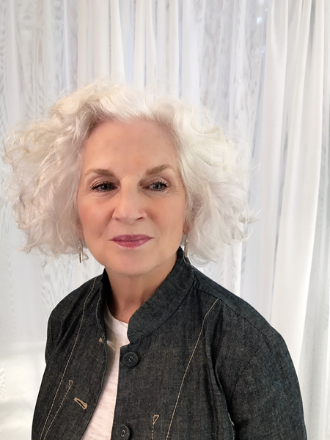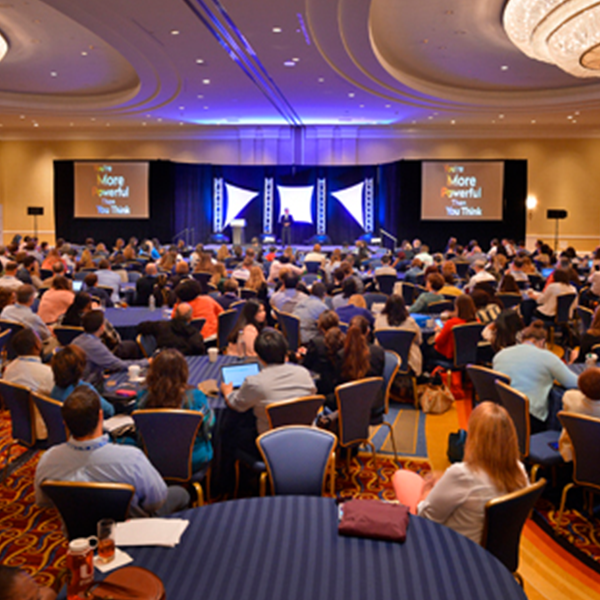By Carolyn Colvin
University of Iowa

As guest editor, I welcome readers to this themed issue of the eJournal of Public Affairs focusing on publicly engaged scholarship and literacy research. The contributing authors—including myself—are deeply committed to the methodologies of public engagement, which not only inform our literacy research but are significant for the literacy learners with whom we work and the contexts in which we choose to work. As the authors describe, we value community engagement and dialogue because, together, they create spaces in which literacy scholars can understand and make claims about the diverse and complex forms of literacy that individuals use to make meaning and construct representations of their worlds. We are pleased to have access to a forum like the eJournal to make our case for publicly engaged scholarship.
We are especially grateful to Marc Cooper and Keri Franklin for the opportunity to explore significant research topics through the eJournal. Keri, Marc, and I came together in 2015 at the Imagining America Conference in Baltimore to discuss a possible themed issue. While rain drenched all who ventured out, we remained inside the Lord Baltimore Hotel to discuss details for a proposal that would guide the issue. Marc’s passion for scholarship that links campuses and communities through civic dialogue was a guiding force for us as he questioned how we might capture the possibilities that arise when literacy scholars work in collaboration with community members. He listened as Keri and I described our thoughts and recommended the eJournal as a possible publication venue. One year earlier, Marc had attended an Imagining America session I chaired addressing public engagement in rural settings, and it was there that I learned of the commitment of Missouri State University faculty to community engagement and civic dialogue, and was inspired by Marc’s vision. The authors in this issue join me in recognizing Marc as the inspiration for this themed issue and acknowledge Keri’s key leadership role when she joined our meeting at the 2016 American Educational Research Association conference to share drafts of our work.
The scholars whose work appears here are, as a group, relative newcomers to academia, and each is guided by individual commitments to publicly engaged scholarship. Here, I describe briefly the journey we have taken to produce the articles in this issue. The group coalesced at a study session I convened at the 2015 Literacy Research Association, during which we conversed with colleagues who were pursuing approaches to scholarship that welcomed, even depended on, the participation of members of respective communities as integral to research. We read and discussed Nicholas Kristof’s 2014 New York Times op-ed, “Professors, We Need You!,” in which Kristof explained why he believed the (re)involvement of university professors was necessary to bring focus on society’s most vexing challenges. Some in the study group described their long involvement working with members of local and global communities; others were constructing career plans as new scholars and sought to emulate similar paths. All of us, however, expressed our unease with the ways promotion and tenure committees tend to evaluate publicly engaged scholarship because of the value some institutions and administrators place on numbers over voices, testing/accountability over sustained community involvement, and objectivity over community participation as measures of research more worthy of tenure. We decided to make a case for literacy scholarship that would include our various publics in the context of working with communities. Our group’s goals and scholarly objectives assumed greater purpose with each successive meeting, during which we would share our work with one another. These conversations strengthened our commitment to the approaches described in the articles of this themed issue.
Our goals for the issue include making visible, with specific examples, the forms of scholarship that are possible when one is committed to engaging with communities in the name of participatory research practices. We also seek to highlight literacy projects in K-12 settings, communities, and higher education that become possible when literacy scholars intentionally choose a public engagement lens. Finally, through this issue, we welcome colleagues who are less familiar with publicly engaged scholarship as we demonstrate why Boyer’s (1990) concept of reconsidering scholarship remains a worthy notion—one worth returning to the center of every scholar’s respective research. It is our contention that publicly engaged scholarship and the vital act of engaging with communities lack the visibility they deserve in the midst of criticisms calling for relevance and cost effectiveness in higher education.
In this issue, we seek to promote deeper conversations focused on the many benefits of public scholarship in literacy settings and to encourage productive dialogue with colleagues. We call on decision makers to sit with these articles and consider the valuable contributions the authors describe around generating new knowledge related to teaching and learning at all levels. Each article highlights valuable models of engagement and collaboration in which community and university partners co-create solutions to address challenges and explore opportunities at the local, global, and national levels.
Rationale for the Themed Issue
In 1990, Boyer posed an important question that urged those in the higher education community to consider how students can be encouraged and supported in becoming productive citizens:
As we move toward a new century, profound changes stir the nation and the world. The contours of a new world order—and the dimensions of new challenges—loom large on the horizon. It is a moment for boldness in higher education and many are now asking: How can the scholar be defined in ways that not only affirm the past but also reflect the present and adequately anticipate the future? (p. 75)
The scholars whose work appears in this issue epitomize the essence of Boyer’s call as they describe how discovery, integration, application, and teaching are at the core of this conception of scholarship. Often relying on the tools of storytelling, the authors describe creating and sustaining powerful literacy collaborations over time with communities as they listen carefully to and learn alongside community members. They understand the valuable knowledge and expertise they bring to these scholarly endeavors and humbly acknowledge the equally valuable knowledge and expertise residing with their community partners.
Defining what it means to be an engaged scholar with community partners is the first step in enacting publicly engaged scholarship. Readers will note that publicly engaged scholarship and community engagement are terms that many authors use synonymously. We, however, recognize that these terms are not quite the same—though they are certainly related. As a group, we tend to be guided by work in the public scholarship arena, and our language reflects it. As Kedley and Flores explain in their article for this issue, it is widely accepted in the field that four guiding principles are necessary in any model of publicly engaged scholarship:
- It is a scholarly endeavor
- that provides mutual benefit (reciprocity) to both community and university partners
- while embracing the processes guiding a civil democracy and,
- with intention, brings together the higher education missions of teaching, research, and service. (Fitzgerald, Bruns, Sonka, Furco, & Swanson, 2012).
These principles illuminate the work of publicly engaged scholars.
Another key characteristic of these authors is that they are literacy scholars in K-16 settings, including both school and community sites, working in partnership with members of those communities. Literacy study and research is often contested terrain where consensus is rarely achieved. Thus, our group was intrigued by the possibilities we might uncover in our explorations of the relationship between literacy research as a discipline and public scholarship as a method.
Moje (2001) observed that in the last three (or more) decades, literacy theories have expanded from a rather narrow, exclusive focus on cognitive understandings of reading and writing processes to a broad valuation of perspectives on reading and writing as “tools for specific purposes in specific contexts” (p. 79). Moje cited as support the seminal work of Gee (1990), Scribner and Cole, (1981), and Street (1984). Literacy researchers acknowledge a shift from viewing reading and writing as existing inside one’s head to embracing the use of reading and writing as tools to make meaning in specific contexts. While literacy scholars continue to recognize and value the cognitive contributions of literacy theory, current scholars recognize that literacy must be viewed as multiple and complex, and dependent on contexts in which literacy practices (behaviors) can be observed and performed.
Our goal was to use the forum of the eJournal to explore the intersections of public scholarship and literacy research in theory and method. Readers will see how these articles bring literacy research and public scholarship together around the concept of community. It is the notion of and value for community that links literacy research and publicly engaged scholarship. The authors provide powerful examples of the ways that literacy practices are enacted and performed in communities so that readers and writers can make meaningful connections and represent their worlds. A key dimension of publicly engaged literacy research is the recognition of the ethical dimension of publicly engaged scholarship. Building and sustaining relationships with community partners and ensuring that mutual benefit comes to those involved in the research is a critical guiding principle to which all public scholars aspire.
Literacy scholars are regularly intrigued by questions that lend a broader reach to literacy development and expertise: What kinds of circumstances, practices, and learners are supported (and not supported) in expanding their literacy repertoires? Such perspectives will likely include learners who are teachers, students, and community members in K-16, community, and higher education settings, adults, and individuals in global contexts.
This themed issue opens with an article by Ashley Patterson, Valerie Kinloch, and Emily Nemeth entitled “The Stories They Tell: Giving, Receiving, and Engaged Scholarship with/in Urban Communities.” These scholars engage readers in a compelling discussion of philanthropy and public service by sharing portraits composed from a five-year publicly engaged project with urban youth, teachers, and community members and framed by Maya Angelou’s concept of giving and receiving. They articulate a vision of benevolent support as civic engagement, a philosophic approach that informs their positions as publicly engaged scholars working with and in urban communities.
All of the authors have some affiliation with teacher education programs. Our identities as teacher educators compel us to examine the place of community and the role of engagement in programs of teacher education. Meghan Barnes describes a sobering reality in her article, “The Absent Dialogue: Challenges of Building Reciprocity through Community Engagement in Teacher Education,” by sharing the results of a review of recent research in teacher education. Her review reveals the lack of significant discussion centering on community and engagement in teacher education scholarship. Barnes concludes by suggesting that more research is needed if we are to engage preservice teachers in enhancing their understanding of communities as valuable sites for teaching and learning.
Joanne Marciano and Vaughn Watson invite readers into their personal examination of how researchers’ perspectives and stances change when youth, who are often those “studied,” join the research endeavor as co-researchers. Their article, “‘Now We Need to Write Something that People Will Read’: Examining Youth Choices as Perspectives on Literacy Research,” builds on current literacy scholarship that takes up asset-based perspectives of youth, rather than focusing on deficits. They note that scholars know less about enacting collaborative partnerships that intentionally include youth’s experiences and perspectives when engaging in participatory research. Marciano and Watson invite readers to consider the ways in which encouraging youth to enact the role of co-researcher reveals potential for engaging them in new forms of civic participation.
The publicly engaged work of research collaborators Kate Kedley and Héctor Efrén Flores takes place in Honduras as they engage youth in public art projects as one way to speak back to violence in their local community. Using examples of their transnational publicly engaged project, these authors engage in a dialogue that addresses how productive partnerships are constructed and sustained. Their article—“Reciprocity in the Practice of Publicly Engaged Scholarship: Reflections from a Transnational Literacy Project”—is a must read for scholars seeking to recruit partners for publicly engaged research. Their commentary is an affirmation of open communication as well as an insightful consideration of issues of power and language in a partnership that strives to address mutual benefit for participants.
Colleagues Amy Lannin and Nancy West describe their “secret desire” to become public intellectuals. The course they created for undergraduates to “go public” with their reading and writing is an engaging account of two administrators’ return to teaching in an effort to bring the community to their classroom. In their article, “Going Public: Teaching Undergraduates How to Write for Broad Audiences,” Lannin and West describe their process of designing a course that gave undergraduates an opportunity to become civically engaged learners and write for audiences beyond their teachers. Their goal was to encourage students to see their learning as opportunities to engage with society in and beyond the university.
I close this introduction by thanking the reviewers who provided thoughtful and critical responses that moved all of these manuscripts forward to publication. We appreciate their care in reading the manuscripts and asking probing questions—the never-easy questions that are the substance of reconsideration and revision.
As I reflect on one final reading of these articles that take up the challenges and opportunities of literacy research by publicly engaged scholars, I borrow from Ellison (2008) two themes that characterize this collection. Each article points to the power of stories in a variety of ways to structure experience and highlight learning. These scholars have, in Ellison’s words, taken up complicated projects that bring together diverse partners and linked teaching and research that yield new products and relationships, while being mindful of the past and the future, in settings that are local and universal (p. 114). It is my hope that the articles here will prompt conversations that extend beyond this single issue. We look forward to hearing from readers.
References
Boyer, E. (1990). Scholarship reconsidered. Priorities of the professoriate. San Francisco: Jossey-Bass.
Gee, J. P. (1990). Social linguistics and literacies: Ideology in discourses. London: Falmer Press.
Ellison, J. (2008). The humanities and the public soul. In K. Mitchell (Ed.), Practicing public scholarship: Experiences and possibilities beyond the academy (pp. 113-121). Hoboken, NJ: Wiley-Blackwell.
Fitzgerald, H. E., Bruns, K., Sonka, S. T., Furco, A., & Swanson, L. (2012). The centrality of engagement in higher education. Journal of Higher Education Outreach and Engagement, 16(3), 7-27.
Kristof, N. (2014, February 16). Professors, we need you! New York Times. Retrieved from https://www.nytimes.com/2014/02/16/opinion/sunday/kristof-professors-we-need-you.html?mcubz=1
Moje, E. B. (2000). Critical issues: Circles of kinship, friendship, position, and power: Examining the community in community-based literacy research. Journal of Literacy Research, 32(1), 77-112.
Scribner, S., & Cole, M. (1981). The psychology of literacy. Cambridge, MA: Harvard University Press.
Street, B.V. (1984). Literacy in theory and practice. Cambridge, UK: Cambridge University Press.
Author Biography
 Carolyn Colvin is an Associate Professor in the Language, Literacy, and Culture Program in the University of Iowa’s College of Education. For 20+ years, Colvin has worked in collaboration with immigrant adults/parents in a rural school district where 60% of the children speak a first language other than English. She directs an adult literacy tutoring program with the school district and recruits preservice teachers to serve as tutors. Her research focuses on understanding the communication practices of immigrant parents and teachers as they forge educational pathways for immigrant children/youth. Her recently published chapter, Contesting the Myth of Uncaring: Latina/o Parents Advocating for Their Children, appears in The Latina/o Midwest Reader (2017) edited by Jiménez, Vaquera-Vásquez, and Fox (U of Illinois Press).
Carolyn Colvin is an Associate Professor in the Language, Literacy, and Culture Program in the University of Iowa’s College of Education. For 20+ years, Colvin has worked in collaboration with immigrant adults/parents in a rural school district where 60% of the children speak a first language other than English. She directs an adult literacy tutoring program with the school district and recruits preservice teachers to serve as tutors. Her research focuses on understanding the communication practices of immigrant parents and teachers as they forge educational pathways for immigrant children/youth. Her recently published chapter, Contesting the Myth of Uncaring: Latina/o Parents Advocating for Their Children, appears in The Latina/o Midwest Reader (2017) edited by Jiménez, Vaquera-Vásquez, and Fox (U of Illinois Press).

